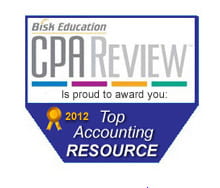$250 Billion Cash at Apple, $86 Billion Cash at Berkshire Hathaway
I am quoted in a Washington Post article on Apple’s $250 billion in cash, and Berkshire Hathaway’s $86 billion in cash.
Kass said he expects a major return by Apple to shareholders through several vehicles, including an increase in the Apple dividend, stock buybacks and a big one-time dividend. He said it is less likely that Apple would make acquisitions, given the company’s historic aversion to them. Berkshire Hathaway has little in overseas exposure because most of its profits are made in the United States. And Buffett has been reluctant for Berkshire Hathaway to pay dividends, arguing that he can make better use of the money by finding smart investments.
“His companies are sufficiently profitable, and he is very patient, that his cash has accumulated over several years,” Kass said. “But if the corporate rate is lowered from 35 percent to 15, 20, 25, it will result in additional profits for Berkshire and just about every other American-based corporation.
“If that takes place, then Warren Buffett’s pile of cash will increase much further,” he said.





The Washington Post either does not understand Cash and Cash Equivalents, or failed to give Berkshire Hathaway its due in representing that company’s “cash” position. As of May 2017, Apple’s 10-Q disclosed $15.157 Billion in cash and equivalents. The Post’s author combined Apple’s short-term marketable securities, long-term marketable securities, and it’s actual cash & equivalents to get the monumentally large figure of $250 Billion. Using the same methodology that the Post used for Apple, BRK had a combined securities and cash position of approximately $245 Billion, as of 31 December 2016.
The thrust of the article is to imply that Apple, among other leading corporations, is earning virtually nothing on massive amounts of cash that they otherwise don’t know what to do with. Large tender offers for buybacks or a special dividend would be palpable, if Apple truly had $250 Billion “sitting in its bank account.” The problem with the Apple example is that fully 74% of its total cash and securities are invested in securities that it — by classification — intends to hold more than one year. Apple may very well go the route of reducing a mind-numbing amount of liquid assets; but it won’t be from sitting on an actual cash hoarde of $250 Billion inside a sad bank account.